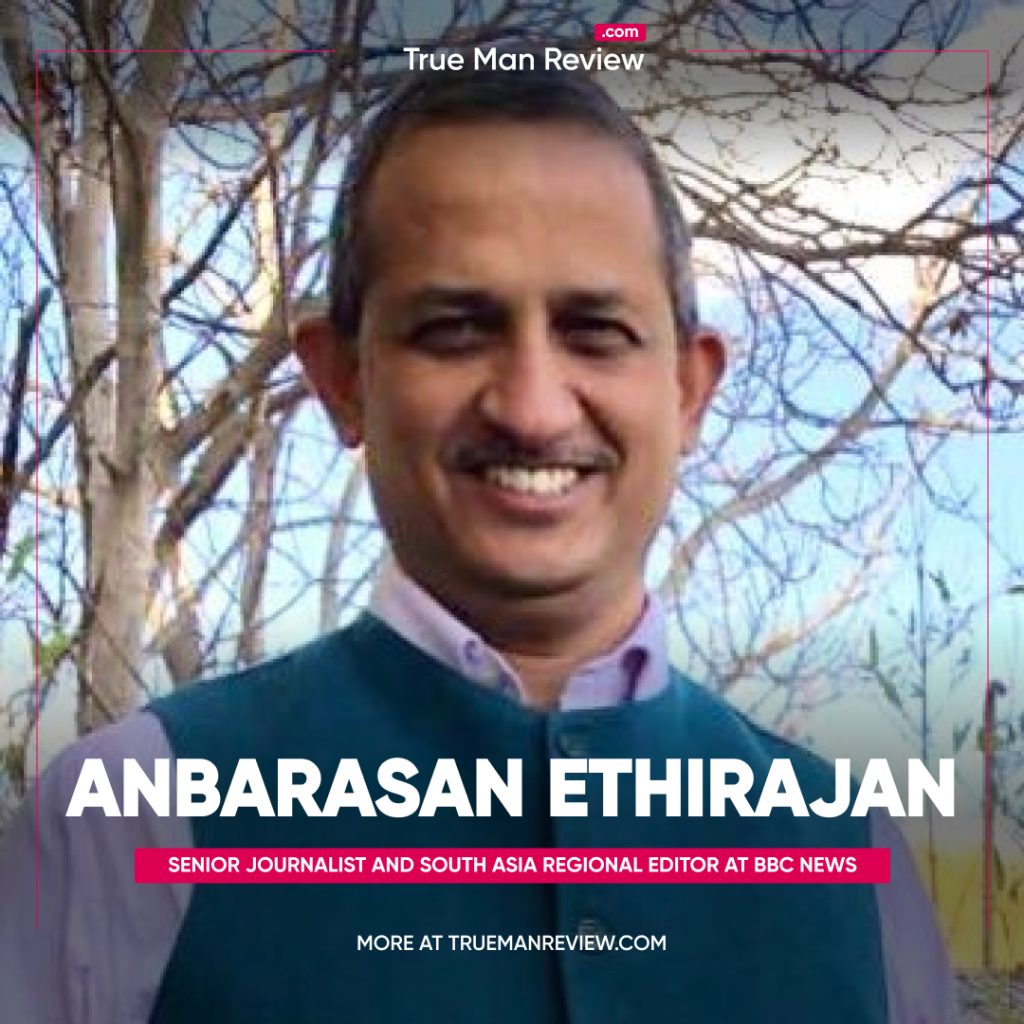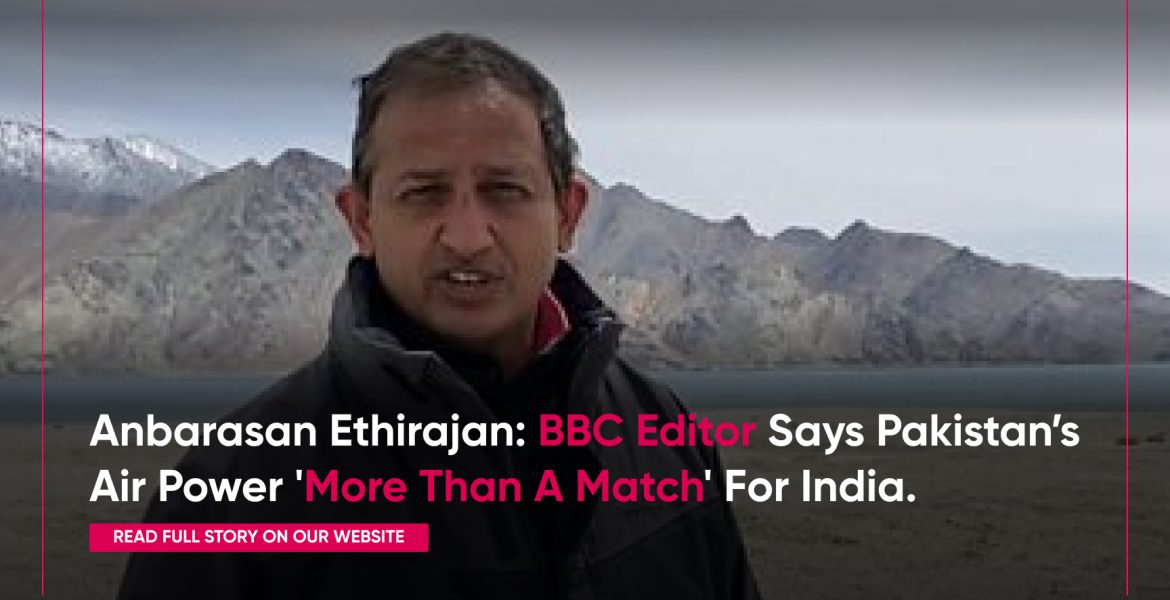Anbarasan Ethirajan BBC Editor: In a striking post-conflict analysis following the recent India–Pakistan military confrontation, Anbarasan Ethirajan, a prominent journalist and South Asia Regional Editor for the British Broadcasting Corporation (BBC), offered a nuanced assessment of the evolving power dynamics between the two nuclear-armed neighbors. His analysis, published via BBC platforms and cited in several regional media outlets, alludes to Pakistan’s unexpectedly robust air power in the face of India’s modernized military apparatus.
The Journalist: Who Is Anbarasan Ethirajan?

Anbarasan Ethirajan is a seasoned BBC journalist who has extensively covered political, security, and diplomatic developments across South Asia. As the BBC’s South Asia Regional Editor, his commentary often combines on-ground realities with a deep understanding of regional geopolitics. Known for his analytical rigor, Ethirajan has earned respect across the subcontinent for his objective reporting on Indo-Pakistani affairs.
What Was Said By Anbarasan Ethirajan
In his commentary, Ethirajan remarked:
“Delhi may also realise that their bitter rival’s air power may be more than a match.”
This concise but potent statement was made in reference to Pakistan’s aerial defense capabilities, which Ethirajan believes may have matched or even exceeded Indian expectations during the recent escalation.
To Whom It Was Said
This quote was part of an analysis presented on BBC World Service and republished on platforms such as Aaj English TV, an English-language portal under AAJ News, which has syndication partnerships with BBC content. It was not an interview or direct communication to an individual, but rather a published journalistic commentary, intended for a global audience interested in South Asian affairs.
About Whom It Was Said
The statement clearly refers to the Pakistan Air Force (PAF), in comparison to the Indian Air Force (IAF). It critiques the strategic outcomes of the recent conflict, wherein India, despite possessing advanced military assets such as Dassault Rafale fighter jets, Israeli-made precision missiles, and other high-tech equipment, was unable to secure a definitive advantage over Pakistan.
Context: The India-Pakistan Conflict of May 2025
The latest confrontation between India and Pakistan escalated rapidly in early May 2025 following cross-border provocations and retaliatory missile strikes. Both nations carried out targeted aerial missions, and while a full-scale war was averted, the skirmishes led to significant regional tensions and international diplomatic interventions, particularly from the United States and the United Kingdom.
Ethirajan’s commentary came after a ceasefire agreement was announced, brokered partially through diplomatic efforts led by Washington. According to his analysis, while both sides suffered losses, it became apparent that Pakistan’s air force had performed with unexpected effectiveness, surprising analysts and, possibly, Indian military planners.
Strategic Implications of the Quote By Anbarasan Ethirajan
Ethirajan’s assertion challenges a long-standing perception that India, by virtue of its larger economy and substantial military budget, maintains undisputed air superiority in the region. He suggests that India’s dependence on Western and Russian weapon systems has not translated into decisive military advantages in practice—particularly in scenarios requiring swift and integrated air response.
On the other hand, Pakistan’s strategic integration of Chinese J-10 fighter jets, enhanced missile platforms, and electronic warfare tactics appear to have paid dividends. This performance has led analysts, including Ethirajan, to reassess the actual air power balance in South Asia.
Public and Media Reactions
While many Pakistani media outlets such as MM News, Times of Karachi, and UrduPoint highlighted Ethirajan’s remarks with headlines such as:
- “British journalist says Pakistan’s air power is superior to India’s”
- “India’s plan failed, admits UK-based analyst”
These headlines, while based on Ethirajan’s commentary, appear to exaggerate or paraphrase his actual statement for public appeal. It is important to emphasize that Ethirajan did not explicitly state that Pakistan’s air power is outright “superior,” but rather “may be more than a match”—a subtle but important distinction indicating parity or strategic equivalence under certain conditions.
Conclusion
The post-conflict reflection offered by Anbarasan Ethirajan serves as an important reminder that military power is not solely determined by hardware acquisition, but by training, integration, adaptability, and strategic doctrine. His remarks invite policymakers in New Delhi and Islamabad—as well as international observers—to rethink conventional assumptions about military superiority in South Asia.
As geopolitical rivalries continue to shape the Indo-Pacific region, Ethirajan’s balanced and evidence-based analysis provides a critical lens through which future conflicts and deterrence strategies must be evaluated.


